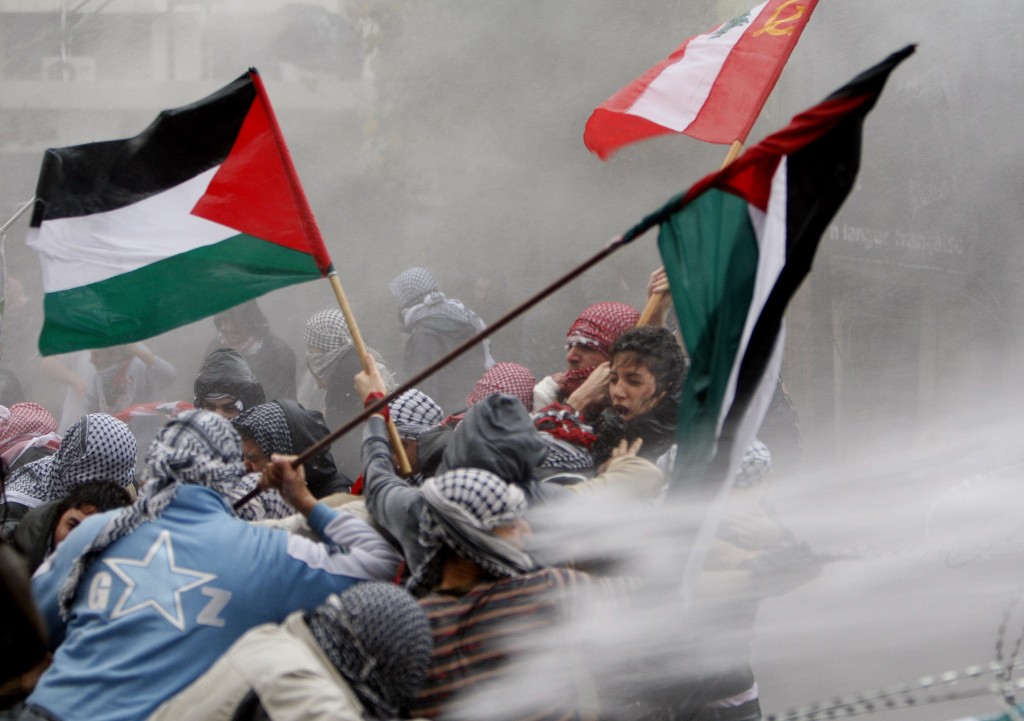Equality for Palestinians? Israel won’t have it
By Ben White, Friday 3 February 2012 07.25 EST
…
The presence of a few Palestinian members in the Knesset (MKs) is often touted as a sign of Israel’s robust democracy. Yet elected representatives of the Palestinian community inside Israel face growing harassment by the state, by fellow MKs and the media.
On Monday, the trial of MK Said Naffaa, from the Balad party, opened in Nazareth. Naffaa is charged with “travelling illegally to an enemy state, assisting in organising a visit to an enemy state, and being in contact with a foreign agent” – all relating to a trip he made to Syria as part of a Druze delegation in 2007.
Naffaa has denied the charges, insisting that “all his activities and meetings fall within the framework of his duties as an elected public official”.
Two years ago the Knesset house committee voted overwhelmingly to strip Naffaa of his parliamentary immunity. At the time, the committee chair declared: “Holding a Knesset seat is not a permit to visit enemy countries and hold meetings with terrorists.” MK Michael Ben-Ari (National Union) suggested that Naffaa and “his colleagues go to the Syrian parliament and work from there“.
An editorial in the Israeli newspaper Ha’aretz has called the prosecution of Naffaa “unwarranted, harmful and smack[ing] of political persecution based on nationality”. It is part of the state’s efforts to use criminal law against the Palestinian leadership in Israel. Another Arab MK, Mohammad Barakeh is still facing two charges (of an original four) relating to his participation in demonstrations in 2005 and 2007, and the allegation he assaulted or insulted police officers.
MK Haneen Zoabi, while not facing criminal charges, has been the target of the most vicious incitement and smears. Two weeks ago, a photograph was published in the Israeli media of her meeting with the Hamas-affiliated Palestinian Legislative Council (PLC) speaker Aziz Dweik in the West Bank. That was followed by reports that two other Arab MKs had met with Dweik.
The response was an outpouring of invective. MKs from prime minister Binyamin Netanyahu’s Likud urged the state to “immediately remove the fifth column from the Knesset”, while the chair of the house committee, MK Levin described Arab MKs as “competing [to be] the greatest traitor and terrorist sponsor”. Another Likud MK, Miri Regev, said that “the time has come for Arab Knesset members to realise their place“.
MK Alex Miller, from Yisrael Beiteinu (a partner in the coalition government) urged that it was time to disqualify Balad, while MK Uri Ariel said Zoabi should be tried as a traitor. Some analysts have noted the strong possibility that Zoabi, as well as her Balad party, and maybe also the United Arab List, will be banned from the next election. In 2010, the chair of the committee that removed Naffaa’s immunity said: “We must make a serious decision on whether or not these parties can continue to sit in the Israeli parliament, even while they operate against the country”.
Along with articles calling Zoabi a “clear and present danger” to Israel’s national security, I found myself being used in the campaign against her, on account of the fact she wrote the foreword to my new book. The Israeli newspaper Yediot Ahronot ran a pathetic smear piece in both the Hebrew print edition and the online English version. Readers’ comments included numerous attacks on Zoabi as a “traitor” – including a call for the death sentence.
So why are representatives of the Palestinian minority being targeted so viciously? First, the current Knesset includes political parties shaped by hard-right nationalist ideology, including those in the coalition government. Second, the likes of MK Ahmad Tibi, Zoabi, and Barakeh have forged links with Palestinians in the occupied territories – as well as those working for Palestinian rights regionally and internationally. These are seen as dangerous solidarity ties, and go against the efforts made by the Israeli state since 1948 to isolate “Israeli Arabs” from the wider Arab world and Palestinian struggle.
Finally, Zoabi and other community leaders are at the forefront of the Palestinian political struggle inside the state, especially the demand that Israel be a state of all its citizens. This is beyond the pale for the Zionist political-security establishment, who continue to define the boundaries of “acceptable” dissent with regard to Palestinian citizens, an approach that goes all the way back to the era of military rule between 1948 and 1966.
In 2007, Israel’s internal security agency, the Shin Bet, stated it would “thwart the activity of any group or individual seeking to harm the Jewish and democratic character of the state of Israel, even if such activity is sanctioned by the law”. In 2008, Shin Bet’s chief, Yuval Diskin, told US officials that many of the “Arab-Israeli population” are taking their rights “too far”. Last month, MK Tibi had two proposed bills thrown out by the Knesset presidency on the grounds that they undermined “Israel’s existence as the state of the Jewish people” (in accordance with the Knesset’s rules of procedure).
Thus, as Palestinian citizens work for an end to decades of ethno-religious discrimination, a clear message is being sent through the targeting of their political leadership. The threat that is deemed intolerable by the state is devastatingly simple: the demand for equality.
…
http://www.guardian.co.uk/commentisfree/2012/feb/03/equality-palestinians-israel or http://bit.ly/wkgDQe

